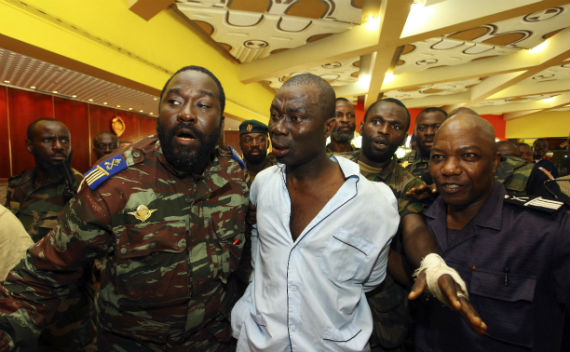International Criminal Court to Investigate War Crimes in Ivory Coast
By experts and staff
- Published
By
- John CampbellRalph Bunche Senior Fellow for Africa Policy Studies

The International Criminal Court (ICC) in The Hague has authorized prosecutor Luis Moreno-Ocampo to investigate war crimes and crimes against humanity in the aftermath of the November 2010 Ivory Coast presidential elections. In addition, the ICC judges directed the prosecutor to report back in one month on any additional information on relevant crimes since 2002, when the ICC was established and when the ongoing political crisis in Ivory Coast was well underway.
Ivory Coast is not a signatory to the ICC, but in May President Ouattara asked the ICC to investigate post-election violence, saying that Ivorian courts would not be able to prosecute those at the highest levels for the crimes committed. In July, forty Ivorian human rights organizations asked the ICC to extend its investigation to crimes committed since 2002.
Following the 2010 elections, human rights organizations have charged supporters of defeated president Laurent Gbagbo and victor Alassane Ouattara with gross human rights violations. Moreno-Ocampo said that at least three thousand people were killed, seventy-two disappeared, five hundred and twenty subject to arbitrary arrest, and one hundred raped. (I suspect these statistics are understated.) Some human rights organizations claim that pro-Ouattara militias are still committing abuses against Gbagbo supporters.
The consequences of the ICC investigation could be significant, especially if, as is likely, Moreno-Ocampo indicts senior political leaders from both sides, as he did in Kenya following post election violence there. Ivory Coast remains bitterly divided, if no longer at war. Former president Gbagbo is in prison and Ouattara has established a Truth and Reconciliation Commission to promote national reconciliation. But some opposition figures are saying that they will not participate until Gbagbo is freed.
This is the seventh ICC investigation in Africa, and there are none currently underway elsewhere. There has been criticism that the ICC has a bias against Africa and is holding the continent to higher standards than elsewhere. The high-profile prosecutor, Luis Moreno-Ocampo is an Argentine; eight of the judges are European, five are African, four are from Latin America (including one who is serving ad interim) and two are Asian. Justices must be from the one hundred and sixteen ICC countries. Only about half of the sub-Saharan African states are signatories to the Rome Treaty, which established the ICC.
Despite these downsides, I think that the ICC investigation in Ivory Coast is a positive development. Along with its investigation, indictments and prosecutions in Kenya following its 2007 bloody elections, the ICC is confronting a culture of impunity with respect to political, ethnic, and religious violence that has been widespread. The ICC’s willingness to go after very senior political leaders (including a son of national icon Jomo Kenyatta in Kenya) also promotes leadership accountability.